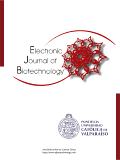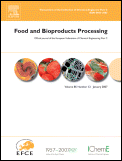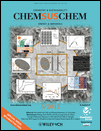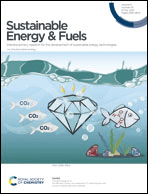
Biotechnology for Biofuels and Bioproducts
metrics 2024
Advancing Sustainable Solutions Through Biotechnology
Introduction
Biotechnology for Biofuels and Bioproducts is a premier international journal published by BMC, situated in the United Kingdom, focusing on the critical intersection of biotechnology and sustainable energy solutions. Established as an Open Access platform in 2022, this journal aims to disseminate high-quality research that advances our understanding of biofuels, bioproducts, and their applications within environmental sustainability. With its commendable Q2 ranking in multiple relevant categories including Applied Microbiology and Biotechnology and Renewable Energy, this journal serves as a vital resource for researchers, industry professionals, and students seeking to explore innovative biotechnological approaches to address global energy challenges. The journal emphasizes interdisciplinary research, fostering collaboration among scientists in biotechnology, environmental science, and policy-making. As it continues to publish impactful findings until 2024, Biotechnology for Biofuels and Bioproducts remains essential for those dedicated to advancing sustainable methodologies in energy and resource management.
Metrics 2024
 -
- 3.30
3.30 3.30
3.30 -
-Metrics History
Rank 2024
IF (Web Of Science)
JCI (Web Of Science)
Quartile History
Similar Journals

ELECTRONIC JOURNAL OF BIOTECHNOLOGY
Unlocking Knowledge in Applied Microbiology and BiotechnologyThe Electronic Journal of Biotechnology is a premier Open Access journal published by Pontificia Universidad Catolica de Valparaiso, Chile, dedicated to advancing the fields of applied microbiology and biotechnology. With its inception in 1998 and an unwavering commitment to sharing knowledge, the journal has garnered a respectable ranking within the Q3 quartile for both its biotechnology and applied microbiology categories as of 2023, reflecting its significance in the academic community. Researchers and professionals will find its editorial rigor complemented by a robust platform for disseminating innovative findings, fostering collaboration, and driving forward biotechnology discussions. Given its inclusive approach, having transitioned to Open Access in 2014, the journal ensures that research is accessible to a global audience, making it a valuable resource for students, academics, and industry practitioners alike. Through the publication of original research, reviews, and critical insights, the Electronic Journal of Biotechnology aims to bridge the gap between scientific discovery and practical application, ultimately contributing to advancements in health, agriculture, and environmental sustainability.

Bioresources and Bioprocessing
Unlocking the Potential of Biological ResourcesBioresources and Bioprocessing is an esteemed open-access journal published by SPRINGER HEIDELBERG, dedicated to the innovative fields of biomedical engineering, biotechnology, food science, and renewable energy. Since its inception in 2014, the journal has rapidly established itself as a leading platform for high-quality research, boasting a Q2 ranking in key categories such as Biomedical Engineering and Biotechnology, and an impressive Q1 status in Food Science for 2023. With robust Scopus rankings placing it in the top percentiles across multiple disciplines, Bioresources and Bioprocessing serves not only as a conduit for original research but also for critical insights into sustainable bioprocessing techniques that contribute to environmental stewardship. It is particularly aimed at researchers, professionals, and students committed to advancing knowledge in the bioprocessing sphere, promoting evidence-based innovations that leverage biological resources for diverse applications. Emphasizing open access, the journal ensures that cutting-edge research is readily available to a global audience, reinforcing its commitment to scientific communication and collaboration.

FOOD AND BIOPRODUCTS PROCESSING
Elevating the standards of food science and technology.FOOD AND BIOPRODUCTS PROCESSING, published by Elsevier, is a leading journal dedicated to advancing the fields of biochemistry, biotechnology, chemical engineering, and food science. With a strong impact factor and robust rankings—Q2 in Biochemistry and Biotechnology, and Q1 in Food Science—it serves as an essential resource for researchers, industry professionals, and students alike. The journal focuses on innovative research and practical applications in the processing of food and bioproducts, spanning from raw material transformation to product development. By fostering the exchange of knowledge and ideas, FOOD AND BIOPRODUCTS PROCESSING aims to enhance food quality and sustainability while addressing global challenges in food security and environmental impact. With an accessible format and a diverse pool of contributors, this publication stands as a vital platform for groundbreaking studies, making significant contributions to the advancement of technology and practices in food processing and production.

Synthetic and Systems Biotechnology
Connecting Disciplines for Revolutionary InsightsSynthetic and Systems Biotechnology, published by KEAI PUBLISHING LTD, is a pioneering open-access journal that has made significant contributions to the fields of applied microbiology, biotechnology, biomedical engineering, genetics, and structural biology since its inception in 2016. With an ISSN of 2405-805X, this journal is committed to fostering innovative research and interdisciplinary collaboration, providing a platform for the dissemination of high-quality studies that push the boundaries of scientific knowledge. Recognized for its excellence, it holds prestigious Q1 rankings in both Applied Microbiology and Biotechnology as well as Biomedical Engineering in 2023, alongside notable Q2 rankings in Genetics and Structural Biology. Researchers, professionals, and students alike can access cutting-edge research that explores the dynamic interplay between synthetic biology and systems biology, driving advancements that could reshape health, industry, and environmental sustainability. By operating under an open-access model, Synthetic and Systems Biotechnology ensures that new findings are accessible to a global audience, thereby maximizing the impact and reach of the published work and paving the way for future discoveries.

CRITICAL REVIEWS IN BIOTECHNOLOGY
Inspiring Excellence in Biotechnology ScholarshipCRITICAL REVIEWS IN BIOTECHNOLOGY, published by Taylor & Francis Ltd, stands as a leading journal in the field of biotechnology, consistently recognized for its rigorous peer-reviewed articles that impact the disciplines of Applied Microbiology, Biotechnology, and Medicine. With an impressive Q1 ranking in these categories and a significant influence reflected in its Scopus rankings—placing it within the top 5% of Applied Microbiology and the top 4% of Biotechnology journals—the journal serves as an essential resource for researchers, professionals, and students alike. Launched in 1983 and extending its coverage to encompass groundbreaking findings through 2024, it provides a rich forum for insightful reviews and innovative research that propel the field forward. Though not an Open Access journal, CRITICAL REVIEWS IN BIOTECHNOLOGY remains a vital point of reference for ongoing developments, critical analyses, and emerging trends, making it indispensable for those seeking to stay at the forefront of biotechnological advancements.

BIOPROCESS AND BIOSYSTEMS ENGINEERING
Elevating Research Standards in BiotechnologyBIOPROCESS AND BIOSYSTEMS ENGINEERING is a prestigious journal published by Springer, dedicated to advancing the field of bioengineering and biotechnology. Established in 1996, this influential journal provides a platform for disseminating high-quality research that covers a wide spectrum of topics related to bioprocessing, biosystems, and their applications in medicine and environmental engineering. With an impressive impact factor and ranking in the top quartile (Q2) across bioengineering, biotechnology, and miscellaneous medical fields, BIOPROCESS AND BIOSYSTEMS ENGINEERING stands out as a critical resource for researchers, professionals, and students. The journal is indexed in Scopus, reflecting its significant contribution to the scientific community, particularly with its robust percentile rankings (77th in Biotechnology and 70th in Bioengineering). Available in both print and electronic formats, this journal ensures accessible research for those pushing the boundaries of knowledge in bioprocessing and biosystems. As it continues to evolve, BIOPROCESS AND BIOSYSTEMS ENGINEERING encourages submissions that contribute to innovative research practices and applications, thereby fostering academic collaboration and advancement in this dynamic field.

BioResources
Connecting researchers to foster a sustainable future.BioResources is a pioneering open access journal launched in 2006, dedicated to disseminating knowledge at the intersection of bioengineering, environmental engineering, and waste management. Published by NORTH CAROLINA STATE UNIVERSITY DEPARTMENT OF WOOD & PAPER SCIENCE, this journal serves as a vital platform for researchers and professionals to explore the sustainable use of biomaterials and renewable resources. With an impact reflected through its Scopus rankings, including a respectable position in the 2023 quartile rankings across several relevant categories, BioResources is committed to advancing scientific discourse and enhancing the understanding of bioresource utilization. The journal not only supports high-quality research but also encourages contributions that shape environmental policies and practices. Accessible globally, it invites active participation from scholars aiming to contribute to a more sustainable future. Researchers, professionals, and students alike will find valuable insights and groundbreaking research within its pages as it continues to foster knowledge and innovation in the field.

ChemSusChem
Advancing Sustainable Solutions Through ChemistryChemSusChem is a premier interdisciplinary journal, published by WILEY-V C H VERLAG GMBH, that focuses on the critical fields of Chemical Engineering, Energy, Environmental Chemistry, and Materials Science. Since its inception in 2008, the journal has consistently maintained a Q1 ranking across multiple categories, highlighting its role as a vital resource for researchers and professionals dedicated to advancing sustainable chemical processes and technologies. With an impressive impact factor, it ranks 12th in General Chemical Engineering and is highly regarded within its scopes, indicating the journal's commitment to publishing high-quality, innovative research that addresses global challenges in energy and environmental sustainability. Though it operates on a subscription model, its contributions are essential for those in academia and industry seeking cutting-edge developments in sustainable chemistry. As it approaches its convergence span through 2024, ChemSusChem continues to shape the future of sustainable chemistry, making it a must-read for students, researchers, and practitioners alike.

Sustainable Energy & Fuels
Leading the Charge in Sustainable Energy ResearchSustainable Energy & Fuels is a leading journal published by the Royal Society of Chemistry, dedicated to advancing knowledge in the fields of energy engineering, fuel technology, and renewable energy solutions. With its ISSN of 2398-4902 and notable Q1 status in both Energy Engineering and Power Technology as well as Fuel Technology, this journal ranks impressively in the Scopus database, ensuring a strong platform for disseminating impactful research. The journal spans a comprehensive scope aimed at addressing the global challenges of sustainable energy, including innovative methodologies and technologies that promote environmental sustainability. Although it operates under a traditional access model, the journal is committed to providing high-quality content that engages researchers, professionals, and students alike. With significant contributions expected through 2024, Sustainable Energy & Fuels stands at the forefront of facilitating scholarly communication, inspiring advancements in energy technologies that align with sustainability goals.

JOURNAL OF BIOSCIENCE AND BIOENGINEERING
Transforming knowledge into impactful innovations.The JOURNAL OF BIOSCIENCE AND BIOENGINEERING, published by the SOC BIOSCIENCE BIOENGINEERING JAPAN, is an esteemed peer-reviewed journal dedicated to advancing knowledge in the fields of applied microbiology, biotechnology, and bioengineering. With its ISSN of 1389-1723 and E-ISSN 1347-4421, this journal has been providing a platform for innovative research since its inception in 1991, maintaining its relevance through periodic updates and a scope that encompasses various aspects of bioscience and engineering. The journal boasts a notable impact factor, reflecting its contributions to the Q2 and Q3 quartiles in relevant categories as of 2023, which positions it amongst the well-regarded publications in its field. Researchers and professionals can access its rich archive through open access options, ensuring wide dissemination of pivotal studies. With its address rooted in Osaka University, Japan, the journal serves as a vital resource for scientists and scholars committed to pushing the boundaries of biosciences and engineering.